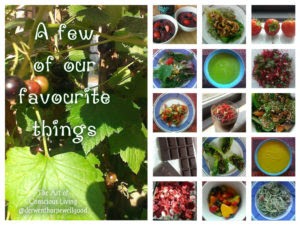If you haven’t, it begs the obvious question of where you might
have been, as we can barely escape from it at the moment following the
recently-ended season of excess, hedonism and abandon that Christmas has come
to mean for many of us. January marks the prime time for the health-brigade
marketing machines to get whirring, promising us instant youth, a sylph-like figure,
and a waistline that a Hollywood movie star
would be proud of.
So why do we subject ourselves to this annual food and drink
binge, knowing full well that the return to work in January will spell misery
as we struggle to fasten our belts, puff and pant up the office stairs with a
fuzzy brain and try to repair the damage to our bank account that December has
inflicted?
This is a question I now find difficult to answer, as I no
longer engage in this frenzy, though I readily admit that I did succumb to it
frequently throughout my 20’s, 30’s and most of my 40’s. I then changed, and it
simply didn’t seem to feel right or desirable any more once I had embarked on
my own journey on a healthier lifestyle, which those who know me will be aware
of. Be assured that my intention here is not to be sanctimonious and all holier
than thou. What interests me particularly is the peculiar tendency we British
appear to have of throwing caution to the wind every year in December, and then
living to regret it afterwards. ….…Which brings me back to my initial
observation at the start of this blog post about how we are subjected to the
bombardment of diet ads and fads at this time of year.
So it is that there is invariably a ‘new kid on the block’ to
add to the plethora of diets that have been doing the rounds. This bobs in and
out of our consciousness throughout January and part of February, only to
fizzle out and be cast aside to gather dust, as most of us unfortunate enough
to have been wooed by its spurious claims find that it just about enabled us to
lose a few pounds but was ultimately too downright miserable and joyless to be
able to sustain for more than a few weeks.
Recently, and perhaps interestingly, the so-called experts at
large have been evaluating and comparing the benefits of the ‘Vegan Diet’ vs
the ‘Mediterranean Diet’ vs the ‘Raw Food Diet’. The jury has given its verdict
and not surprisingly, the revered Mediterranean Diet is the one that has come
out on top. Obvious really, the Mediterranean way of eating is both joyous and
nourishing and is one which I and my wife Annette partake in each and every
day….and yet, remarkably, a typical meal for us will emphasise food in its raw
state (ie.salad greens, vegetables and fruit) and food that would sit comfortably
on any vegan’s plate, as we choose not to eat meat, eggs or dairy.
So, my point is, why be absolutist and why focus on labels and
on the negatives of this or that way of eating, instead of looking
at the bigger picture and the positives and giving thought to why we may choose to eat in a certain way? For some,
this may be for health reasons, for others perhaps for the sake of animal welfare,
for the environment, for the taste and quality of the food…or simply to avoid
man-made, highly-processed and nutrient-void food that may do us harm?
Fad diets will come and go, but eating food that is wholesome
and that is based on what nature offers us will invariably allow us to flourish
and help us to maintain balance. The more we eat this way, the more aware we
become of what makes us feel good and what brings us down, and on a more
spiritual level, of the world in which we live.













